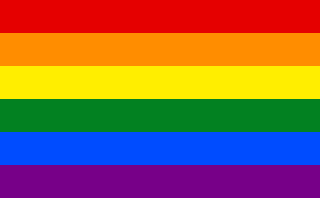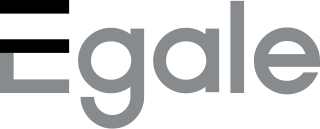The Victorian Pride Lobby (the Lobby, formerly the Victorian Gay and Lesbian Rights Lobby) is a community-based advocacy group that works towards equality, social justice and advancing human rights for lesbian, gay, queer, bisexual and same-sex attracted people in Victoria.
The Lobby was created in October 1997, following the presentation of a report to a public meeting which proposed a model for a Victorian Gay and Lesbian Rights Lobby. This model was accepted, and 21 days later the Lobby held its first annual general meeting, elected a management committee, adopted the rules of association, and began the process of incorporation. [1]
The Victorian Pride Lobby is a community based advocacy group that works towards equality, social justice and advancing human rights for lesbian, gay, queer, bisexual, and same sex attracted Victorians. They work together with, and lobby on behalf of, the whole community. They do not speak in the place of trans and gender diverse, intersex, and asexual community members, but rather work in conjunction with trans and gender diverse, intersex, and asexual community organisations to achieve social change for the LGBTIQA+ community.
In 2020, the Lobby’s members and the Committee of Management voted unanimously in favour of changing its name to the Victorian Pride Lobby. [2]
The Lobby has worked on a variety of issues such as domestic partnerships, [3] access to in vitro fertilisation and adoption, [4] and an end to homophobic violence. [5]
The Lobby also initiated the national Equal Love campaign, in an effort to win marriage rights for Australian gay and lesbian couples. [6]
The Committee is voted in by its membership at an annual general meeting.
The Committee is made up of up to 10 current Lobby members from the gay, lesbian, bisexual, queer and same-sex attracted community. The Committee of Management is responsible for the day-to-day running of the organization and each member usually heads a portfolio or working group. [7]
Current Committee members include: [8]
The current Co-Convenors are Austin Fabry-Jenkins and Liam Elphick.

Lesbian, gay, bisexual, transgender and queer (LGBTQ) movements are social movements that advocate for LGBTQ people in society. Although there is not a primary or an overarching central organization that represents all LGBTQ people and their interests, numerous LGBT rights organizations are active worldwide. The first organization to promote LGBT rights was the Scientific-Humanitarian Committee, founded in 1897 in Berlin.

Queer is an umbrella term for people who are not heterosexual or are not cisgender. Originally meaning 'strange' or 'peculiar', queer came to be used pejoratively against LGBT people in the late 19th century. From the late 1980s, queer activists began to reclaim the word as a neutral or positive self-description.

LGBTQ is an initialism of lesbian, gay, bisexual, transgender and queer or questioning. It is an umbrella term, broadly referring to all sexualities, romantic orientations, and gender identities which are not heterosexual or cisgender.

Egale Canada is a Canadian charity founded in 1986 by Les McAfee to advance equality for Canadian lesbian, gay, bisexual and transgender (LGBTQ) people and their families, across Canada.
The origin of the LGBT student movement can be linked to other activist movements from the mid-20th century in the United States. The Civil Rights Movement and Second-wave feminist movement were working towards equal rights for other minority groups in the United States. Though the student movement began a few years before the Stonewall riots, the riots helped to spur the student movement to take more action in the US. Despite this, the overall view of these gay liberation student organizations received minimal attention from contemporary LGBT historians. This oversight stems from the idea that the organizations were founded with haste as a result of the riots. Others historians argue that this group gives too much credit to groups that disagree with some of the basic principles of activist LGBT organizations.
COLAGE is an organization created in 1990 by the children of several lesbian and gay parents and guardians who felt a need for support.

A pride flag is any flag that represents a segment or part of the LGBTQ community. Pride in this case refers to the notion of LGBTQ pride. The terms LGBTQ flag and queer flag are often used interchangeably.
Over the course of its history, the LGBTQ community has adopted certain symbols for self-identification to demonstrate unity, pride, shared values, and allegiance to one another. These symbols communicate ideas, concepts, and identity both within their communities and to mainstream culture. The two symbols most recognized internationally are the pink triangle and the rainbow flag.

New Zealand society is generally accepting of lesbian, gay, bisexual, transgender and queer (LGBTQ) peoples. The LGBTQ-friendly environment is epitomised by the fact that there are several members of Parliament who belong to the LGBTQ community, LGBTQ rights are protected by the Human Rights Act, and same-sex couples are able to marry as of 2013. Sex between men was decriminalised in 1986. New Zealand has an active LGBTQ community, with well-attended annual gay pride festivals in most cities.

LGBT movements in the United States comprise an interwoven history of lesbian, gay, bisexual, transgender and allied social movements in the United States of America, beginning in the early 20th century. A commonly stated goal among these movements is social equality for LGBT people. Some have also focused on building LGBT communities or worked towards liberation for the broader society from biphobia, homophobia, and transphobia. LGBT movements organized today are made up of a wide range of political activism and cultural activity, including lobbying, street marches, social groups, media, art, and research. Sociologist Mary Bernstein writes: "For the lesbian and gay movement, then, cultural goals include challenging dominant constructions of masculinity and femininity, homophobia, and the primacy of the gendered heterosexual nuclear family (heteronormativity). Political goals include changing laws and policies in order to gain new rights, benefits, and protections from harm." Bernstein emphasizes that activists seek both types of goals in both the civil and political spheres.

Brisbane Pride Festival is an annual event in Brisbane, Queensland, Australia, which celebrates queer culture. It started in 1990.

Equal Ground is a non-profit advocacy organization based in Colombo, Sri Lanka, that campaigns for political, social and civilian rights for lesbian, gay, bisexual, transgender (LGBT), intersex and queer individuals. The organization, established in 2004, is one of the first organization in Sri Lanka welcoming and advocating equality for people of all sexual orientations and gender identities.

The following outline offers an overview and guide to LGBTQ topics:
Kenita Placide is a human rights, HIV, and LGBT activist from St. Lucia. They are the founder and Executive Director the Eastern Caribbean Coordinator of Caribbean Forum for Liberation and Acceptance of Genders and Sexualities (CariFLAGS). Between 2014 and 2016, they served at the Women's Secretariat for the International Lesbian, Gay, Bisexual, Trans and Intersex Association. They have been on the forefront of bringing LGBT issues into discussion throughout the Anglo-Caribbean and international community.

Intersex people are born with sex characteristics that "do not fit the typical definitions for male or female bodies". They are substantially more likely to identify as lesbian, gay, bisexual, or transgender (LGBT) than endosex people. According to a study done in Australia of Australian citizens with intersex conditions, participants labeled 'heterosexual' as the most popular single label with the rest being scattered among various other labels. According to another study, an estimated 8.5% to 20% experiencing gender dysphoria. Although many intersex people are heterosexual and cisgender, this overlap and "shared experiences of harm arising from dominant societal sex and gender norms" has led to intersex people often being included under the LGBT umbrella, with the acronym sometimes expanded to LGBTI. Some intersex activists and organisations have criticised this inclusion as distracting from intersex-specific issues such as involuntary medical interventions.
Sexual diversity or gender and sexual diversity (GSD), refers to all the diversities of sex characteristics, sexual orientations and gender identities, without the need to specify each of the identities, behaviors, or characteristics that form this plurality.
Queer erasure refers to the tendency to intentionally or unintentionally remove LGBT groups or people from record, or downplay their significance, which includes lesbian, gay, bisexual, transgender, and queer people. This erasure can be found in a number of written and oral texts, including popular and scholarly texts.